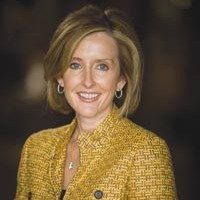 |
 |
 |
 |
When municipalities have development-related issue at stake, one of the first organizations they call is Valley Partnership. Advocacy for responsible development is the driving force of the 27-year-old organization, which often takes a stance on behalf of its busy members. The issues range from state legislation and statewide issues such as land reform efforts, Government Property Lease Excise Tax (GPLET), copper theft and economics of Luke Air Force Base. Leading into 2014, the organzation is in the midst of community district financing.
Many members have taken turns sitting on VP’s advocacy committees, with a focus on city and county to federal influence, but no one has more ears to the ground than DMB Associate’s Karrin Taylor. Taylor is the immediate past chair of the board and has sat on multiple committees.
“(VP’s advocacy) started out many years ago working at the local level and coming out of an era when anything related to development or developers wasn’t seen in best light,” says Taylor. The most robust is the City County Committee, Taylor says, which is represented by a laundry list of the Valley’s municipalities. About four years ago, Valley Partnership got involved on a federal level with the Clean Water and Endangered Species acts. The committee has since turned into a roundtable for the congressional offices as well as a forum for educating members of the development community, Taylor observes.
“Through that legacy, we’ve become the voice of the development community and local jurisdictions. Before they proceed with ordinances, they call us,” she says. “Valley Partnership really represents the entire industry. We’re seen as the one that has to look at things holistically.” Valley Partnership’s working relationship with the cities is based on communication and trust, says the organization’s CEO and President Richard Hubbard.
“Using regular meetings between private sector developers and municipal staffers, we are able to discuss and resolve potential issues related to commercial real estate regulation prior to those issues becoming problems. Through more than 27 years of this process and the resolutions of dozens of complicated issues related to oversight of commercial development, experience has led both developers and the cities to rely on each other’s expertise with the common goal of effectively building quality projects.”
As mentioned earlier, one of Valley Partnership’s slogans is that it advocates for developer issues so its members can focus on business. When an issue arises, Taylor says, Hubbard will give a “call to arms” so members are aware of an issue and committee members can work on an industry response. “We rely on them to take the leadership role and managing issues as they arise,” Taylor says. “The relevance of the organization as a reasonable and educated voice of issues facing the development community (is its greatest achievement).”
Taylor serves as President of the Foundation for Environmental and Economic Progress (FEEP), which represents major landowners and stakeholders across the country in the advancement of balanced federal environmental law and policy on endangered species acts and wetlands issues. Hubbard served as the Deputy Arizona State Land Commissioner and during his time generated more than $1B in sale and lease revenue for the trust’s beneficiaries, Arizona Public Education. It was the most profitable period of the department in its century-long existence. In a similar vein, current Arizona State Land Commissioner Vanessa Hickman has been on the board of Valley Partnership for 2.5 years and prior to that was a member in the private sector.
Among the organization’s most significant advances at the legislature, says Hubbard, is the years-long work to preserve the GPLET.
“Our developer partners have used the GPLET tool to develop some of the most important real estate projects in the Valley,” he says, adding, “We are also the biggest watchdog of preserving reasonable impact fees applicable to commercial real estate. Valley Partnership has also worked to support other economic development incentives designed to bring new employers to Arizona including the formation of the Arizona Commerce Authority.”
What comes to mind for Hickman was the northern expansion of the Black Mountain Freeway. Valley Partnership backed the development due to transportation’s role in allowing for economic growth and clearing traffic congestion. On that issue, Valley Partnership drafted a letter to the City of Phoenix advocating for the project to move forward.
Valley Partnership has also taken a stance on the extension of long-term leases. The organization advocated the legislature change the statutes so that during the recession people could pay their rent with more time.
Land-use and entitlement lawyer Carolyn Oberholtzer, partner at Bergin, Frakes, Smalley & Oberholzter, has been a Valley Partnership member since 2004 and has sat on the board for four years. She works with municipalities and counties on development project phases and has handled entitlements for some of Arizona’s largest masterplanned communities, commercial, industrial and renewable energy facilities. She was retained by Valley Partnership in 2007 to work on a parking calculations issue in Buckeye that she says could have potentially hurt retail development in the city. Oberholtzer worked in tandem with VP’s on-staff lobbyist.
Oberholtzer, with Hickman, sits on the City County Committee and worked on impact fees and what the effect would be on large land owners and the ability to plan on infrastructure in the future. The committee worked diligently, Hickman says, on what the legislation would look like. “We really engaged with this latest go around with the impact-fee legislation,” Oberholtzer adds. “Some of the stakeholder groups were bitterly divided. We got involved to iron out a solution. We’re living with the results. It’s not perfect legislation but that’s where we try to be most helpful. Where there are areas of disagreement between developers and municipalities.”
“I think the members, we, all have our respective missions and goals for the organizations we represent,” Hickman says. “We live in Arizona and we want this to be a beautiful place to work and raise our families, so to understand that development happens in a progressive way and is thoughtful and well-planned and not done in a way that will adversely impact our community partners and state.”




